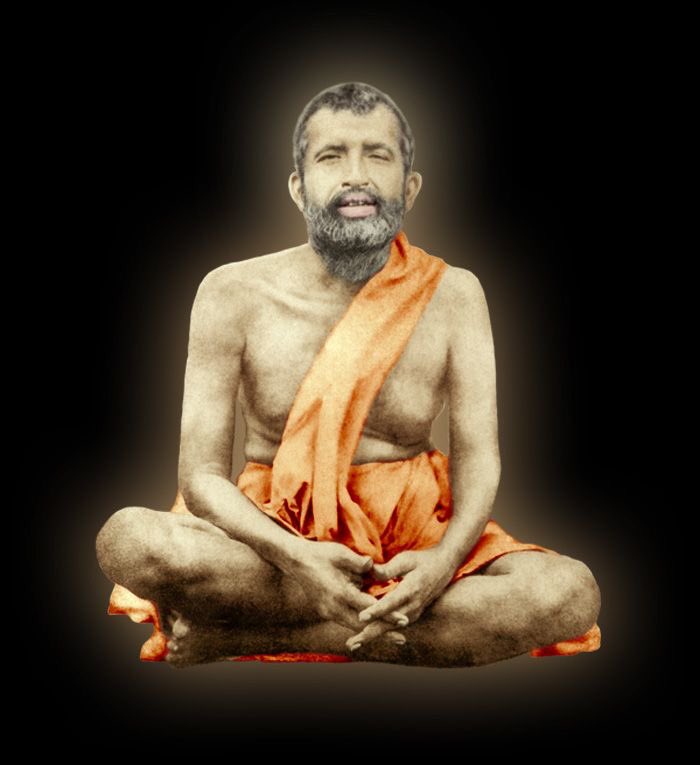
Let’s explore a controversial topic : Food
Why controversial ? We assume we can eat anything. It’s left to the individuals.
NO. Our dharma, traditions, rishis have categorically stated what kind of food one should partake of and which ones to be avoided. A 🧵 1/n
Why controversial ? We assume we can eat anything. It’s left to the individuals.
NO. Our dharma, traditions, rishis have categorically stated what kind of food one should partake of and which ones to be avoided. A 🧵 1/n

Swami Vivekananda's writings in Prachya o Pashchatya (East and West) show that he pondered deeply on this question. He also discussed it at length with his disciple Sharat Chandra in Belur and their discussion is reproduced in the book …++ 2/n 

++…Swami-Shishya Sambad which is an invaluable document on Swami Vivekananda and forms part of the authentic literature on Swamiji in Bengali. 3/n
In his writings on bhakti-yoga, Swami Vivekananda refers to commentary of Bhagavan Ramanuja on pure and impure food. According to Ramanuja, three things cause food to become impure:
1) jaati dosha impurity in the nature of the food itself, like onion and garlic, …++ 4/n
1) jaati dosha impurity in the nature of the food itself, like onion and garlic, …++ 4/n

which excite the nerves and addle your brains;
2) ashraya dosha impurity arising out of contact with an impure person, and
3) nimitta dosha-impure because of impurities like worms, hair or dirt in the food. 5/n
2) ashraya dosha impurity arising out of contact with an impure person, and
3) nimitta dosha-impure because of impurities like worms, hair or dirt in the food. 5/n
Ashraya dosha is the most difficult to avoid and Swamiji had learnt to deal with it when he was away from the math, both during his travels in India and abroad. 6/n
Instance 1 : The famous artist Charles Neilson once invited Swami Vivekananda to dinner at a Chinese restaurant in Chinatown, San Francisco. The owner of the restaurant was known to Neilson and the Chinese chef even came over and spoke personally to the guests. 7/n 

To save time, Neilson had already planned the menu with the chef. When the food arrived, however, Swami Vivekananda would not touch it and rose abruptly from the table because of ashraya dosha. 8/n 

One look at the Chinese chef and Swamiji could, with his inner eye, detect that he was an amoral man. Mr Neilson was extremely disappointed.
Instance 2: Swami Vivekananda was taken to a French restaurant. There he ordered fried prawns. When he returned home that evening, ++ 9/n
Instance 2: Swami Vivekananda was taken to a French restaurant. There he ordered fried prawns. When he returned home that evening, ++ 9/n

he began vomiting. He said, 'I am getting like my master. I shall have to live in a glass box.' He was referring to the fact that Sri Ramakrishna could not partake of food or drink touched by an impure (morally) person. 10/n 

There’s reference of ashraya dosha in the Mahabharat, albeit indirectly. The Udyoga Parva talked about Sri Krishna going to Hastinapura as a Peace Emissary. Besides the fact that the deal hadn’t been sealed, ++ 11/n 

He avoided hospitality /food at the behest of Duryodhana - who was inimical to the Pandavas and so the food served from his side was believed to be impure owing to his amoral nature or in other words contained ashraya dosha. 12/n
From times immemorial, there has been tradition of “sapak ahar” in our society (self-cooked food) in every day lives & also while travelling - reason could be the same : to avoid ashraya dosha. 13/n
Reference : The Monk as Man - the Unknown Life of Swami Vivekananda by Shankar 14/14
#SwamiVivekananda
#food
#ashrayadosha
#impurefood
#EastandWest
#BhagwanRamanuja
#SwamiVivekananda
#food
#ashrayadosha
#impurefood
#EastandWest
#BhagwanRamanuja
• • •
Missing some Tweet in this thread? You can try to
force a refresh









